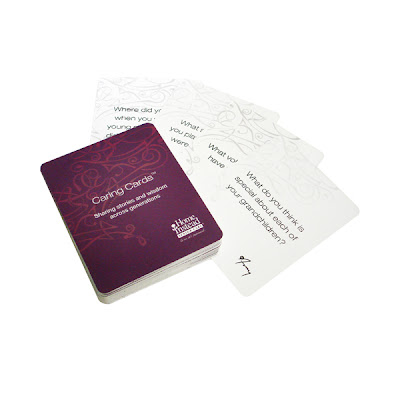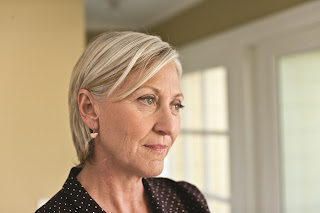Especially painful, readers said, was witnessing a loved one’s suffering and feeling helpless to do anything about it.
The therapists I spoke with said they often encountered symptoms among caregivers similar to those shown by people with post-traumatic stress — intrusive thoughts, disabling anxiety, hyper-vigilance, avoidance behaviors and more — even though research documenting this reaction is scarce. Improvement with treatment is possible, they say, although a sense of loss may never disappear completely.
I asked these professionals for stories about patients to illustrate the therapeutic process. Read them below and you’ll notice common themes. Recovery depends on unearthing the source of psychological distress and facing it directly rather than pushing it away. Learning new ways of thinking can change the tenor of caregiving, in real time or in retrospect, and help someone recover a sense of emotional balance.
Barry Jacobs, a clinical psychologist and author of “The Emotional Survival Guide for Caregivers” (Guilford Press, 2006), was careful to distinguish normal grief associated with caregiving from a traumatic-style response.
“Nightmares, lingering bereavement or the mild re-experiencing of events that doesn’t send a person into a panic every time is normal” and often resolves with time, he said.
Contrast that with one of his patients, a Greek-American woman who assisted her elderly parents daily until her father, a retired firefighter, went to the hospital for what doctors thought would be a minor procedure and died there of a heart attack in the middle of the night.
Every night afterward, at exactly 3 a.m., this patient awoke in a panic from a dream in which a phone was ringing. Unable to go back to sleep for hours, she agonized about her father dying alone at that hour.
The guilt was so overwhelming, the woman couldn’t bear to see her mother, talk with her sisters or concentrate at work or at home. Sleep deprived and troubled by anxiety, she went to see her doctor, who works in the same clinic as Dr. Jacobs and referred her to therapy.
The first thing Dr. Jacobs did was to “identify what happened to this patient as traumatic, and tell her acute anxiety was an understandable response.” Then he asked her to “grieve her father’s death” by reaching out to her siblings and her mother and openly expressing her sadness.
Dr. Jacobs also suggested that this patient set aside a time every day to think about her father — not just the end of his life, but also all the things she had loved about him and the good times they’d had together as a family.
Don’t expect your night time awakenings to go away immediately, the psychologist told his patient. Instead, plan for how you’re going to respond when these occur.
Seven months later, the patient reported her panic at a “3 or 4” level instead of a “10” (the highest possible number), Dr. Jacobs said.
“She’ll say, ‘oh, there’s the nightmare again,’ and she can now go back to sleep fairly quickly,” he continued. “Research about anxiety tells us that the more we face what we fear, the quicker we are to extinguish our fear response and the better able we are to tolerate it.”
Sara Qualls, a professor of psychology at the University of Colorado in Colorado Springs, said it’s natural for caregivers to be disgusted by some of what they have to do — toileting a loved one, for instance — and to be profoundly conflicted when they try to reconcile this feeling with a feeling of devotion. In some circumstances, traumatic-like responses can result.
Her work entails naming the emotion the caregiver is experiencing, letting the person know it’s normal, and trying to identify the trigger.
For instance, an older man may come in saying he’s failed his wife with dementia by not doing enough for her. Addressing this man’s guilt, Dr. Qualls may find that he can’t stand being exposed to urine or feces but has to help his wife go to the bathroom. Instead of facing his true feelings, he’s beating up on himself psychologically — a diversion.
Once a conflict of this kind is identified, Dr. Qualls said she can help a person deal with the trigger by using relaxation exercises and problem-solving techniques, or by arranging for someone else to do a task that he or she simply can’t tolerate.
Asked for an example, Dr. Qualls described a woman who traveled to another state to see her mother, only to find her in a profound disheveled, chaotic state. Her mother said that she didn’t want help, and her brother responded with disbelief. Soon, the woman’s blood pressure rose, and she began having nightmares.
In therapy, Dr. Qualls reassured the patient that her fear for her mother’s safety was reasonable and guided her toward practical solutions. Gradually, she was able to enlist her brother’s help and change her mother’s living situation, and her sense of isolation and helplessness dissipated.
“I think that a piece of the trauma reaction that is so devastating is the intense privacy of it,” Dr. Qualls said. “Our work helps people moderate their emotional reactivity through human contact, sharing and learning strategies to manage their responsiveness.”
Dolores Gallagher-Thompson, a professor of psychiatry at Stanford University School of Medicine in California, noted that stress can accumulate during caregiving and reach a tipping point where someone’s ability to cope is overwhelmed.
She tells of a vibrant, active woman in her 60s caring for an older husband who declined rapidly from dementia. “She’d get used to one set of losses, and then a new loss would occur,” Dr. Gallagher-Thompson said.
The tipping point came when the husband began running away from home and was picked up by the police several times. The woman dropped everything else and became vigilant, feeling as if she had to watch her husband day and night. Still, he would sneak away and became more and more difficult.
Both husband and wife had come from Jewish families caught up in the Holocaust during World War II, and the feeling of “complete and utter helplessness and hopelessness” that descended on this older woman was intolerable, Dr. Gallagher-Thompson said.
Therapy was targeted toward helping the patient articulate thoughts and feelings that weren’t immediately at the surface of her consciousness, like, for example, her terror at the prospect of abandonment. “I’d ask her ‘what are you afraid of? If you visualize your husband in a nursing home or assisted living, what do you see?’” Dr. Gallagher-Thompson said.
Then the conversation would turn to the choices the older woman had. Go and look at some long-term care places and see what you think, her psychologist suggested. You can decide how often you want to visit. “This isn’t an either-or — either you’re miserable 24/7 or you don’t love him,” she advised.
The older man went to assisted living, where he died not long afterward of pneumonia that wasn’t diagnosed right away. The wife fell into a depression, preoccupied with the thought that it was all her fault.
Another six months of therapy convinced her that she had done what she could for her husband. Today she works closely with her local Alzheimer’s Association chapter, “helping other caregivers learn how to deal with these kinds of issues in support groups,” Dr. Gallagher-Thompson said.
















